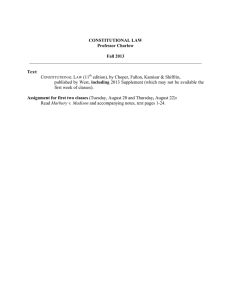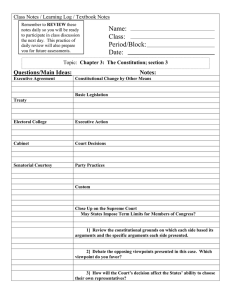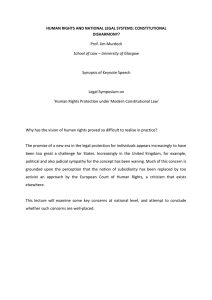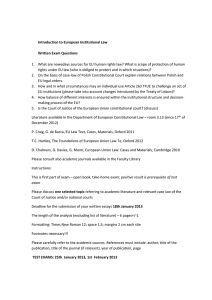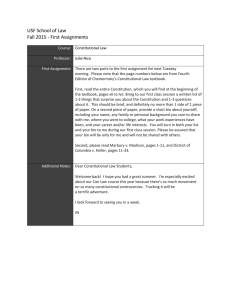Comparative Constitutional Law: The Case of Israel Prof. Amnon Lehavi
advertisement
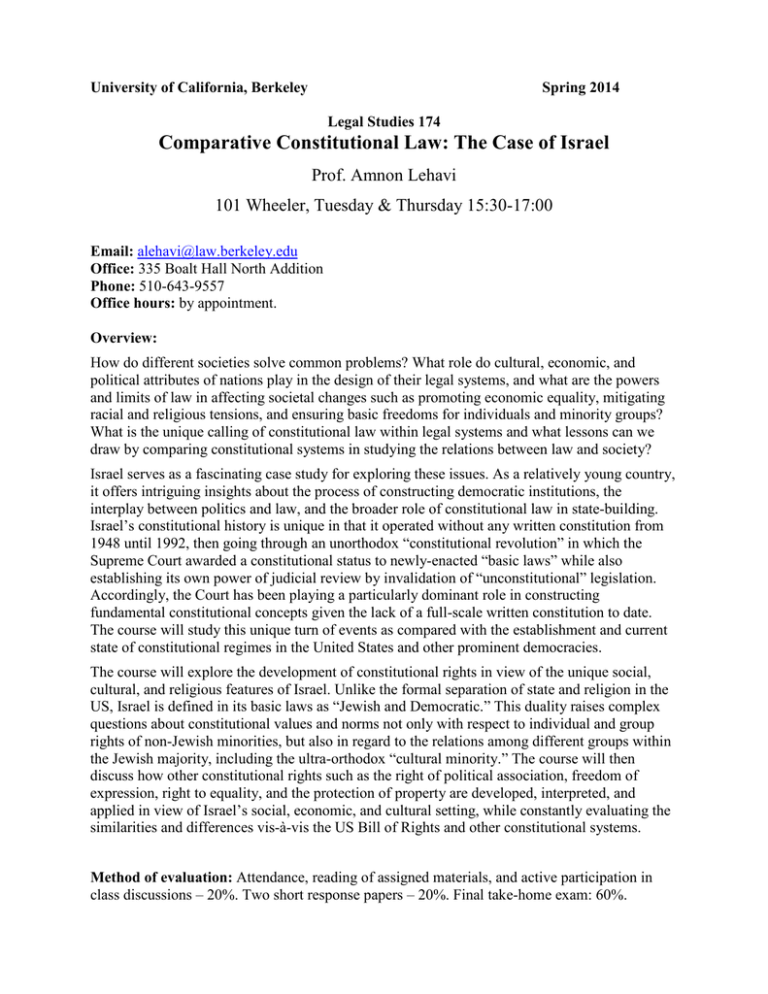
University of California, Berkeley Spring 2014 Legal Studies 174 Comparative Constitutional Law: The Case of Israel Prof. Amnon Lehavi 101 Wheeler, Tuesday & Thursday 15:30-17:00 Email: alehavi@law.berkeley.edu Office: 335 Boalt Hall North Addition Phone: 510-643-9557 Office hours: by appointment. Overview: How do different societies solve common problems? What role do cultural, economic, and political attributes of nations play in the design of their legal systems, and what are the powers and limits of law in affecting societal changes such as promoting economic equality, mitigating racial and religious tensions, and ensuring basic freedoms for individuals and minority groups? What is the unique calling of constitutional law within legal systems and what lessons can we draw by comparing constitutional systems in studying the relations between law and society? Israel serves as a fascinating case study for exploring these issues. As a relatively young country, it offers intriguing insights about the process of constructing democratic institutions, the interplay between politics and law, and the broader role of constitutional law in state-building. Israel’s constitutional history is unique in that it operated without any written constitution from 1948 until 1992, then going through an unorthodox “constitutional revolution” in which the Supreme Court awarded a constitutional status to newly-enacted “basic laws” while also establishing its own power of judicial review by invalidation of “unconstitutional” legislation. Accordingly, the Court has been playing a particularly dominant role in constructing fundamental constitutional concepts given the lack of a full-scale written constitution to date. The course will study this unique turn of events as compared with the establishment and current state of constitutional regimes in the United States and other prominent democracies. The course will explore the development of constitutional rights in view of the unique social, cultural, and religious features of Israel. Unlike the formal separation of state and religion in the US, Israel is defined in its basic laws as “Jewish and Democratic.” This duality raises complex questions about constitutional values and norms not only with respect to individual and group rights of non-Jewish minorities, but also in regard to the relations among different groups within the Jewish majority, including the ultra-orthodox “cultural minority.” The course will then discuss how other constitutional rights such as the right of political association, freedom of expression, right to equality, and the protection of property are developed, interpreted, and applied in view of Israel’s social, economic, and cultural setting, while constantly evaluating the similarities and differences vis-à-vis the US Bill of Rights and other constitutional systems. Method of evaluation: Attendance, reading of assigned materials, and active participation in class discussions – 20%. Two short response papers – 20%. Final take-home exam: 60%.
